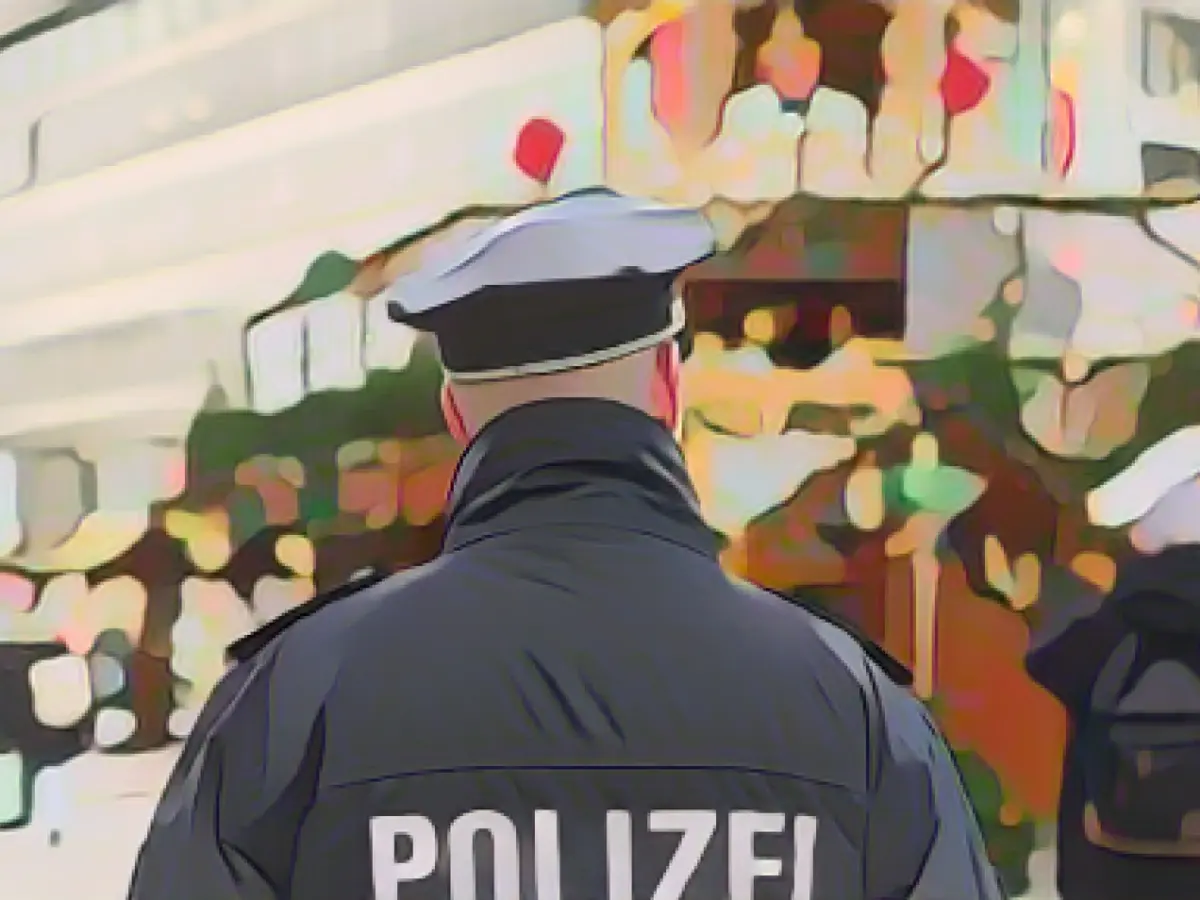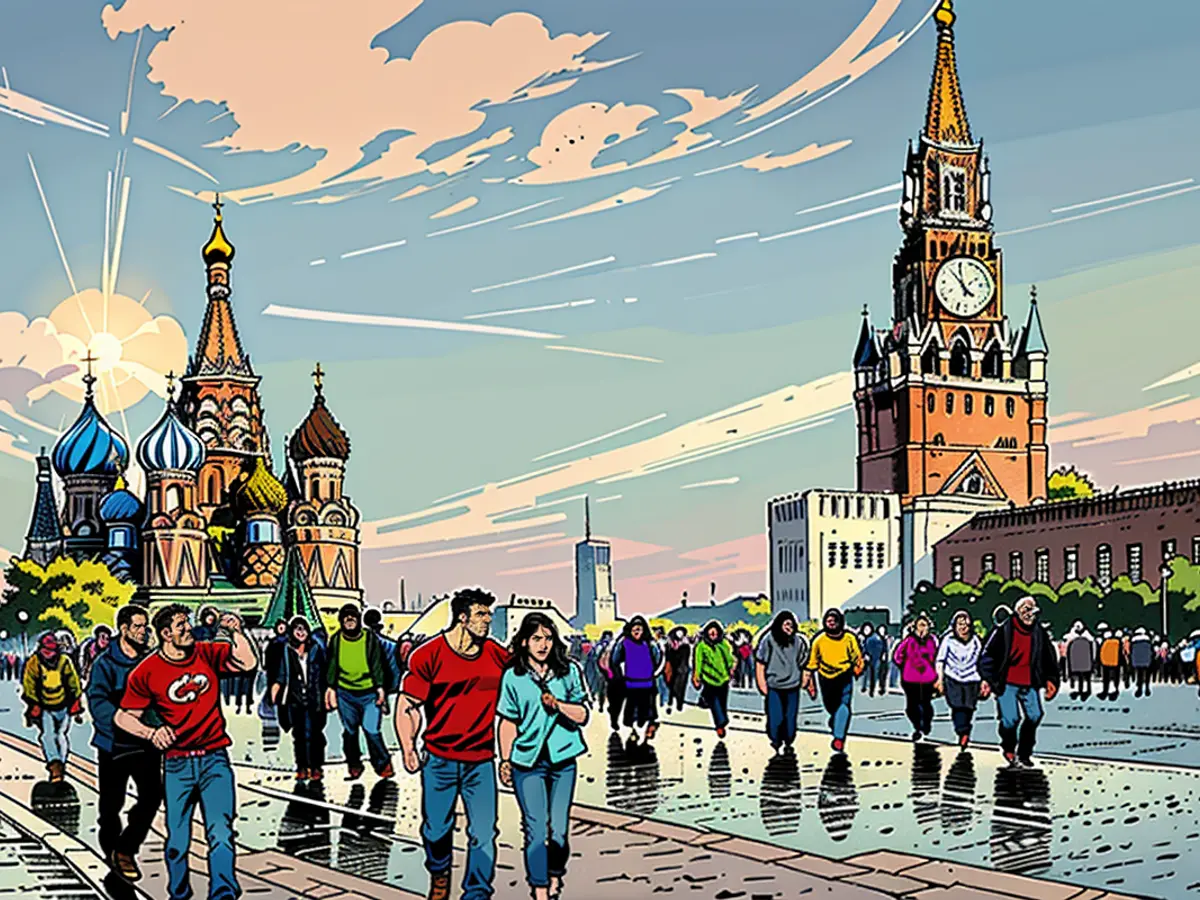Extremism - Precautionary arrests show Islamist terror threat
Three arrests within a week. Three young or juvenile suspects. The suspected targets: Christmas markets. The first tip-off about possible terror scenarios came from abroad. What's going on?
Terror experts in the security authorities assume that there is a connection with the escalation of the Middle East conflict, which is perceived differently by Muslims and Arabs than by the German majority society. This does not necessarily refer to the brutal terrorist attack orchestrated by Hamas, in which more than 1,200 people were killed and around 240 hostages taken in Israel on October 7. Rather, the Israeli military offensive in the Gaza Strip, which began a few days later, is perceived as disproportionate, which terrorist groups looking for sympathizers and assassins are trying to exploit for their own purposes.
Terrorist propaganda, which has already used the Koran burnings in Sweden as an opportunity to incite against everything "Western", is now actively using the "narrative of the supposedly necessary "protection of the Al-Aqsa Mosque" in Jerusalem and the fight against Israel and Judaism", according to a statement from the Federal Office for the Protection of the Constitution this week. Terrorist groups such as al-Qaeda or the offshoots of the Islamic State (IS) terrorist militia sometimes have to make considerable ideological contortions, as they have often vilified Hamas, which emerged from the Muslim Brotherhood, in the past as being too lax and beyond their own Salafist doctrine.
It was clear immediately after the brutal attack by Islamist Hamas on October 7 that developments in the Middle East would have a direct impact on the security situation in Germany. Intensive talks were already underway between those responsible that weekend. Protection concepts for Jewish institutions and other possible targets were reconsidered, and known Islamist threats were once again given greater attention. A so-called special evaluation was set in motion.
Hamas and Samidoun network banned
In this context, Federal Minister of the Interior Nancy Faeser (SPD) also refers to the banning orders against Hamas and the Palestinian network Samidoun, which she issued on November 2. Terrorism experts do not expect people associated with these two groups to carry out attacks in Germany. However, the measures made possible by such a ban to prevent so-called propaganda activities by Hamas and Samidoun, both online and offline, would already have an effect, according to the ministry.
As a rule, however, it takes more for individual perpetrators or small groups who become radicalized within a short period of time to turn solidarity with the predominantly Muslim Palestinians into an aggressive, militant attitude, which then leads to preparations for a terrorist attack. This is often accompanied by uprooting, self-perceived failure, separation or similar personal experiences of frustration.
"Soft target": lots of people, no access control
According to the security authorities, the fact that the two young people who were picked up by the police in North Rhine-Westphalia and Brandenburg on Monday, as well as the Iraqi taken into custody in Lower Saxony, presumably wanted to go to Christmas markets has nothing to do with the Christian background of these events. Rather, it was probably about heading for a "soft target", i.e. a place where many people come together without being checked in.
Furthermore, it may not be possible to rule out that the three suspects wanted to imitate the terrorist attack of December 19, 2016. Back then, a rejected asylum seeker from Tunisia had driven a stolen truck into the Christmas market on Breitscheidplatz at Berlin's Memorial Church. As a result of the attack, 13 people died.
The fact that this gruesome act is still present in the minds of many Islamists was shown, for example, after the attack in Brokstedt. The public prosecutor's office accuses the defendant Ibrahim A. of stabbing a 17-year-old girl and her boyfriend, who was two years older, to death on January 25, 2023 near Brokstedt train station. Two other women and two men suffered serious injuries. Following the arrest of the Palestinian, it became known that he had previously made positive references to the Berlin attacker during a stay in a Hamburg prison.
France raises terror alert level
Germany is not the only country affected. The analysis by the Office for the Protection of the Constitution states: "In various neighboring European countries, terrorist attacks have taken place in recent weeks, some of whose perpetrators made explicit reference to the Middle East conflict." Against this backdrop, several EU states - including France - recently raised their national terror alert level.
The "Middle East confrontation and its impact on Germany" is also on the agenda of the autumn conference of federal and state interior ministers, which Berlin is hosting next week. The President of the Central Council of Jews, Josef Schuster, and Israel's ambassador, Ron Prosor, are expected to attend.
In the consultations on the planned reform of the citizenship law, representatives of the coalition with the traffic light system have emphasized in recent days that the draft bill presented by the cabinet explicitly mentions that someone who has been convicted of an anti-Semitic crime cannot be naturalized. Saxony-Anhalt's Minister of the Interior, Tamara Zieschang, would like to go one step further. She proposes that the naturalization tests "be supplemented by questions on the special responsibility for Jewish life in Germany and on Israel's right to exist". In an interview with the German Press Agency, the CDU politician says: "Naturalization should be denied in the case of anti-Semitic attitudes."
Lesen Sie auch:
- The terror threat in Germany is not isolated, as shown by the recent arrests of three suspects linked to potential terror attacks at Christmas markets.
- The escalation of the Middle East conflict is believed to be a contributing factor to this terror threat, with the conflict perceived differently by Muslims and Arabs than German society.
- Terrorist groups are exploiting this situation, using propaganda to incite against the West and promote their cause against Israel.
- The terrorist attack orchestrated by Hamas in Israel, resulting in over 1,200 deaths and hostage takings, is not the primary focus of this exploitation.
- Instead, the Israeli military offensive in the Gaza Strip is perceived as disproportionate, providing terrorists with sympathizers and potential assassins.
- The Federal Office for the Protection of the Constitution has noted that terrorist groups, such as al-Qaeda and IS offshoots, often need to make ideological contortions in their views on Hamas.
- The brutal attack by Islamist Hamas on October 7 prompted immediate discussions on the security situation in Germany.
- Protection concepts for Jewish institutions and other potential targets were reviewed, and known Islamist threats were given greater attention.
- Federal Minister of the Interior Nancy Faeser cited the banning orders against Hamas and the Palestinian network Samidoun as measures to prevent propaganda activities by these groups.
- The arrested suspects were allegedly planning to target Christmas markets, not due to the Christian nature of the events, but because of the high number of people and lack of access control.
- The attack in Berlin in 2016 is still a significant reference point for Islamist extremists, as shown by the positive references made to the Berlin attacker in prison.
- France, among other EU countries, has raised its terror alert level in response to these developments.
- The Middle East conflict and its impact on Germany will be discussed at the upcoming conference of federal and state interior ministers.
- Saxony-Anhalt's Minister of the Interior is proposing stricter naturalization tests, including questions on the special responsibility for Jewish life in Germany and Israel's right to exist.
Source: www.stern.de







